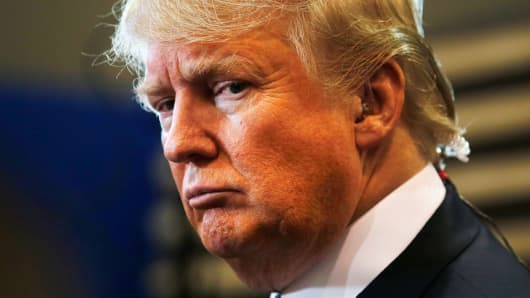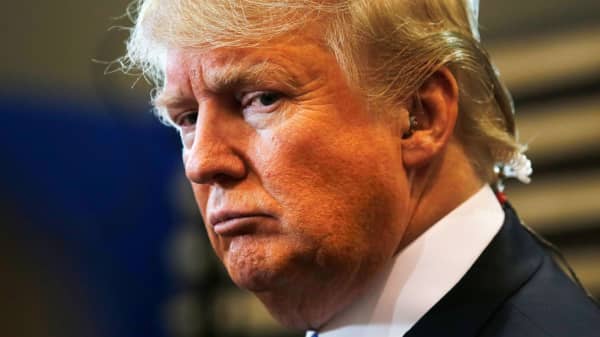Not since Bill Clinton dubbed himself the comeback kid after the 1992 New Hampshire primary (even though he didn't win) will there be a more impactful New Hampshire primary – at least in the Republican race.
As New Hampshire voters head to the polls, there seems to be consensus on two things: 1) Donald Trump will be the victor, and 2) Who will finish second and third is truly a jump ball. And, whoever finishes second or third in New Hampshire, will likely be the GOP nominee.
First, Mr. Trump has had a large and consistent lead since late July. He's hovering around 30 percent and put in a decent debate performance on Saturday night. To me, the question is: Will Trump achieve 30 percent or more of the vote? His garnering less than 25 percent will be seen as another underperformance, and it will be a troubling sign for his campaign's long-term prospects. I've long thought Donald Trump wouldn't be the GOP nominee, yet a lower than expected finish in New Hampshire will probably seal his fate.
If Trump fails to perform in the New Hampshire primary, he will continue his downward trajectory for two reasons: 1) pollsters' consistent overestimation of the number of Independents who will vote in the primary, and 2) the fact that the collective liberal archive of material on this guy is finally becoming known.
In the last few years, Donald Trump has expressed views on taxes, health care, immigration and eminent domain that are all much more liberal than collective GOP base. Without the boisterous personality and message discipline, he'd be the most moderate candidate seeking the Republican nomination. The other problem will be, I suspect, a failure to turn out people who would vote for him. He underperformed expectations in Iowa, and he can't afford to do it again in New Hampshire. It's not enough to have people love you, they need to be inspired to show up when it's time to vote. If I'm wrong, and he dominates his opposition taking a larger than 35 percent vote share, watch for him to continue to win in the South.
But, the much more interesting story will be what happens below Donald Trump on the ballot. Heading into Saturday night's debate, Senator Marco Rubio had all the momentum, and I would have predicted a second place finish. But, his widely panned debate performance likely stopped his momentum, although it may not have reversed it.
All three governors — John Kasich, Jeb Bush, and Chris Christie — had great debates; Bush especially. They performed when they needed to. That's what governors do and why we almostalways elect a governor as president.
Heading into the debate — if you're among those who believe public opinion polling is at least directionally correct — Rubio and Kasich were likely to finish second and third. Now, there is much less consensus on how the ballot shapes up.
Can Kasich finish second? Can Bush capitalize on his strong debate performance and finish in the top three? Does Ted Cruz finish third or fifth? Can Christie, who was consistently in sixth place for the last week, capitalize on the dressing down he gave Marco Rubio? And, finally, does Marco Rubio maintain one of the three tickets out of New Hampshire? The answer to these questions will determine who carries the GOP into the general election.
But, if Bush or Christie, both of whom have been left for dead many times during this race, finish second or third, watch for them to catapult into the GOP nomination. And, there will be a new comeback kid.
Commentary by Sara Taylor Fagen, a partner at DDC Advocacy and a former Political Director for President George W. Bush. She is also a CNBC contributor. Follow her on Twitter @sarafagen2.
For more insight from CNBC contributors, follow @CNBCopinion on Twitter.
Correction:
This op-ed has been updated to reflect that Bill Clinton had a strong comeback in the 1992 New Hampshire Democratic primary but didn't win.








